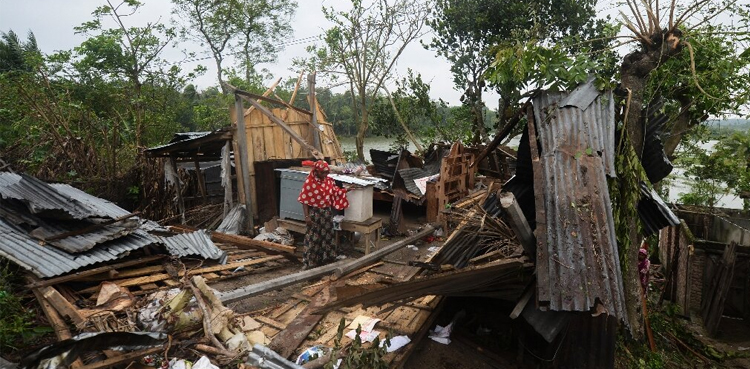At least nine people have died after a cyclone slammed into Bangladesh, forcing the evacuation of around a million people from their homes, officials said Tuesday.
Cyclones — the equivalent of hurricanes in the Atlantic or typhoons in the Pacific — are a regular menace but scientists say climate change is likely making them more intense and frequent.
Cyclone Sitrang made landfall in southern Bangladesh late Monday but authorities managed to get about a million people to safety before the monster weather system hit.
“Nine people have died, most by trees falling including three from one family in (the eastern district of) Cumilla”, Jebun Nahar, a government official, told AFP.
People evacuated from low-lying regions such as remote islands and river banks were moved to thousands of multi-storey cyclone shelters, Disaster Management Ministry secretary Kamrul Ahsan told AFP.
“They spent the night in cyclone shelters,” he said.
In some cases police had to cajole villagers who were reluctant to abandon their homes, officials said.
Heavy rains lashed much of the country, flooding cities such as Dhaka, Khulna and Barisal — which witnessed 324 millimetres (13 inches) of rainfall on Monday.
About 33,000 Rohingya refugees from Myanmar, controversially relocated from the mainland to a storm-prone island in the Bay of Bengal, were ordered to stay indoors and there were no reports of any casualties or damage, officials said.
In the neighbouring eastern Indian state of West Bengal, thousands of people were evacuated Monday to more than 100 relief centres, officials said, but there were no reports of damage and people were returning home on Tuesday.
Cyclone Amphan, the second “super cyclone” ever recorded over the Bay of Bengal, which hit in 2020, killed more than 100 people in Bangladesh and India, and affected millions.
In recent years, better forecasting and more effective evacuation planning have dramatically reduced the death toll from such
from International News Today - Breaking News, US News, World News https://ift.tt/O29LFKr
via IFTTT
